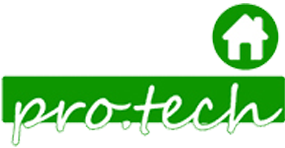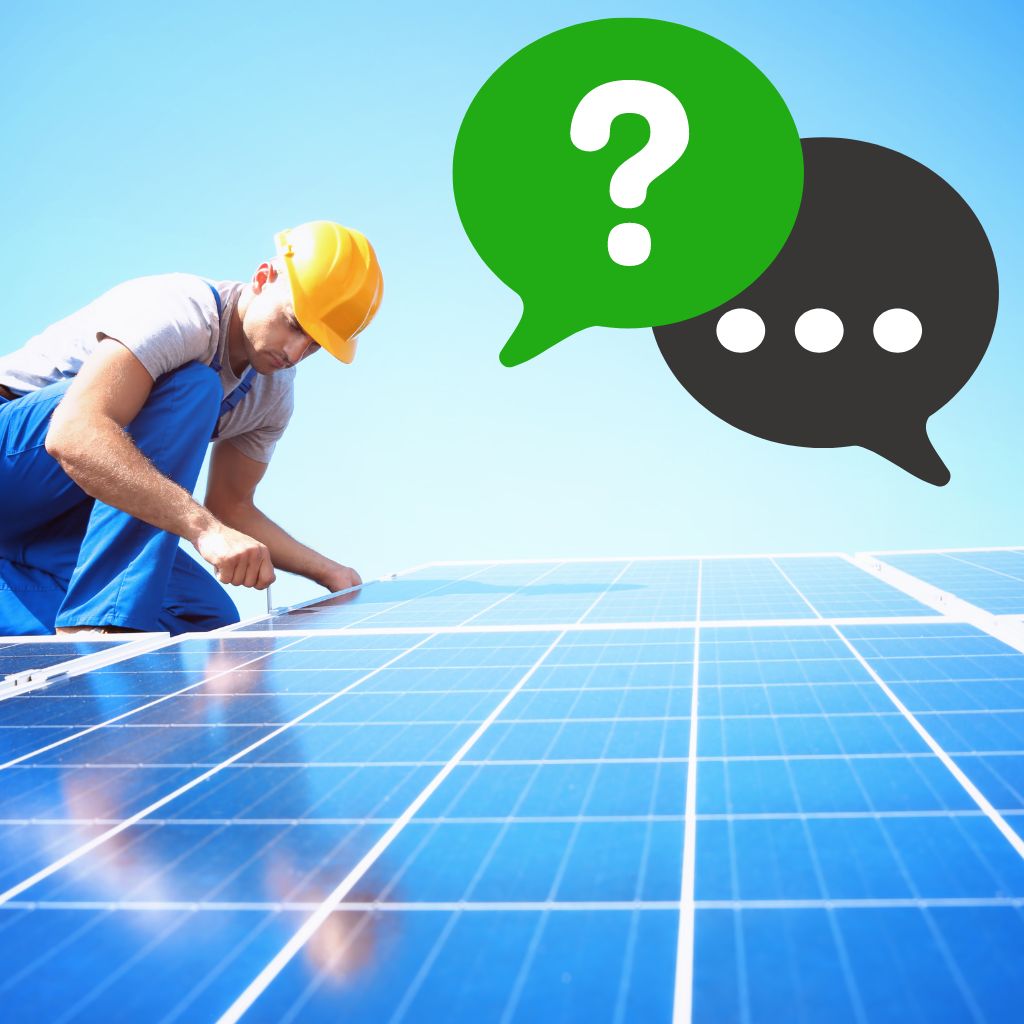Can Solar Panels Power a Home in the UK?
Absolutely. The adoption of solar energy in the UK has seen approximately 1.2 million homes harnessing its power as of 2023. The capability of solar panels to meet household energy needs depends on various factors. A solar panel-only installation can cater to up to 75% of your energy requirements. With the integration of a battery system, the solar PV system’s capacity increases to powering up to 90% of your household’s energy demand. To determine the feasibility for your specific property, consulting with a qualified solar panel installer becomes paramount. Their expertise allows for a comprehensive assessment of your home and roof’s suitability, along with precise calculations of potential electricity generation.
Is Solar Panel Installation Dangerous?
Indeed, the installation of solar panels entails certain risks. Working at elevated heights and handling high-voltage DC current make it potentially hazardous. It’s imperative to understand that the combination of these factors can pose safety challenges. One of the primary concerns is the possibility of electrical faults, which, in extreme cases, could lead to fire incidents. To mitigate these risks, it is crucial to engage the services of a skilled and competent solar panel installer. This ensures adherence to safety standards and guidelines, providing assurance throughout the installation process.
Can Solar Panels Overheat?
Yes, solar panels can overheat under specific conditions. Despite being designed to operate in high temperatures, excessive heat can have adverse effects on their performance and efficiency. It’s noteworthy that the UK’s climate, though unpredictable, rarely experiences extreme temperatures. Nevertheless, preventing overheating requires careful consideration during the installation phase. Proper installation, regular maintenance checks, and ensuring sufficient airflow around the panels are critical measures to counteract potential overheating issues.
Do Solar Panels Work at Night?
No, solar panels cannot generate electricity at night. The fundamental principle of solar panels relies on sunlight to produce electricity through the photovoltaic effect. During daylight hours, solar panels convert visible light from the sun into electrical energy. Although solar panels do operate in winter and on cloudy days with limited sunlight, their functionality ceases entirely during the night when sunlight is unavailable. To address this limitation, homeowners can opt for grid-connected systems, utilizing the National Grid to support energy needs during nighttime hours. Additionally, the integration of solar batteries such as the Tesla Powerwall shown below allows the stored energy generated during daylight hours to be utilised at night, providing a sustainable solution.
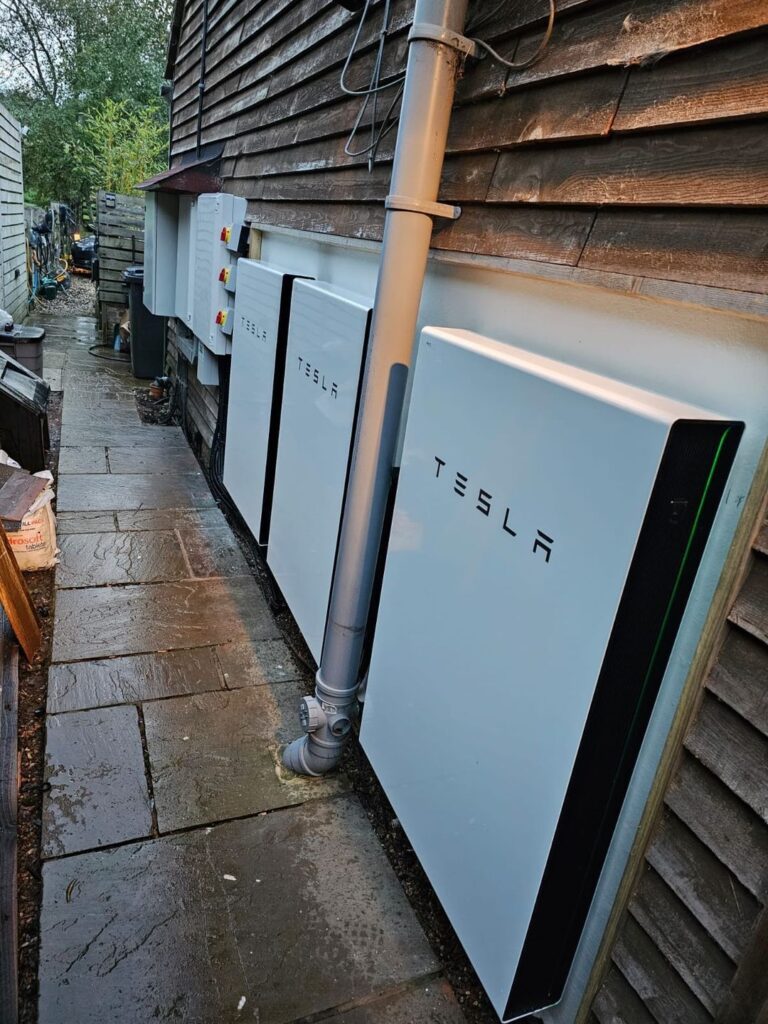
Will Solar Panels Become More Efficient?
Solar panel technology has undergone significant advancements, with continuous research and development aimed at enhancing efficiency. Presently, residential solar panels typically exhibit an efficiency range of 15-23%. The most premium solar panels available for installation can achieve around 23% module efficiency. This progress is indicative of the industry’s commitment to providing more efficient and powerful solar panels. Projections, including those from figures like Elon Musk, suggest that solar panel efficiency could reach a maximum of around 30%. However, it’s essential to acknowledge that, due to technological constraints, achieving much higher efficiency may be challenging. Nonetheless, with sustained research and development, the solar industry holds promise for further evolution in the coming years.
Can Solar Panels be Installed Without a Smart Meter?
Yes, it is possible to install solar panels without a smart meter. Smart meters play a role in measuring and recording electricity consumption, as well as tracking the flow of electricity to and from the National Grid. While not a mandatory requirement for solar panel installations, having a smart meter offers additional benefits. It provides access to off-peak and economy 7 energy tariffs, facilitating the charging of batteries and electric vehicles. Moreover, for those looking to receive compensation for exported energy, a smart meter, recording both Distribution Network Operator (DNO) and MCS Certificates, becomes essential. This comprehensive data ensures eligibility for Smart Export Guarantee payments. It’s essential to note that even if your meter is not deemed “smart,” it must still record import and export data at half-hourly rates for participation in off-peak or economy 7 tariffs. A dual-meter setup becomes necessary for those interested in these specific tariff structures.
Do Solar Panels Work in Power Cuts?
In a conventional grid-tied solar panel system, where the solar panels are connected to the National Grid, they cease operation during a power cut. This is a deliberate safety feature designed to protect National Grid engineers working on power restoration. However, for those seeking uninterrupted power during outages, the option of an off-grid or hybrid solar system, coupled with energy storage, provides a viable solution. In such systems, solar panels can continue to supply electricity, offering a reliable source of power during power cuts. For homeowners facing frequent power interruptions or residing in rural areas, the installation of an Emergency Power Supply (EPS) ensures backup power, maintaining essential loads during periods of outage.
Do Solar Panels Affect Home Insurance?
Installing solar panels does not inherently impact your home insurance. Typically, solar panels are covered as part of your building insurance. However, it is imperative to inform your insurance provider about the impending installation. This notification should be provided at least 30 days before the installation date. While the specifics can vary between insurers, in most cases, the presence of solar panels does not significantly impact insurance premiums. Some insurers may request information such as your installer’s public liability or a copy of the certification post-installation. To ensure a smooth process and to gain clarity on any potential changes in terms and conditions, contacting your insurer before installation is advisable.
Are Solar Panels Self-Cleaning?
While solar panels possess some self-cleaning properties, it’s crucial to understand the nuances of this feature. The manufacturing of solar panels often involves the use of self-cleaning glass, making them somewhat resistant to the accumulation of dust, dirt, and debris. This self-cleaning attribute becomes particularly evident when it rains, as the water can wash away surface dirt, thanks to the special hydrophilic and photocatalytic coating on the panels. However, the effectiveness of self-cleaning glass can be influenced by environmental factors. In dry and dusty conditions, relying solely on rainwater may not be sufficient to maintain optimal cleanliness. Hence, periodic and routine maintenance is recommended to ensure the sustained performance of your solar panel system.
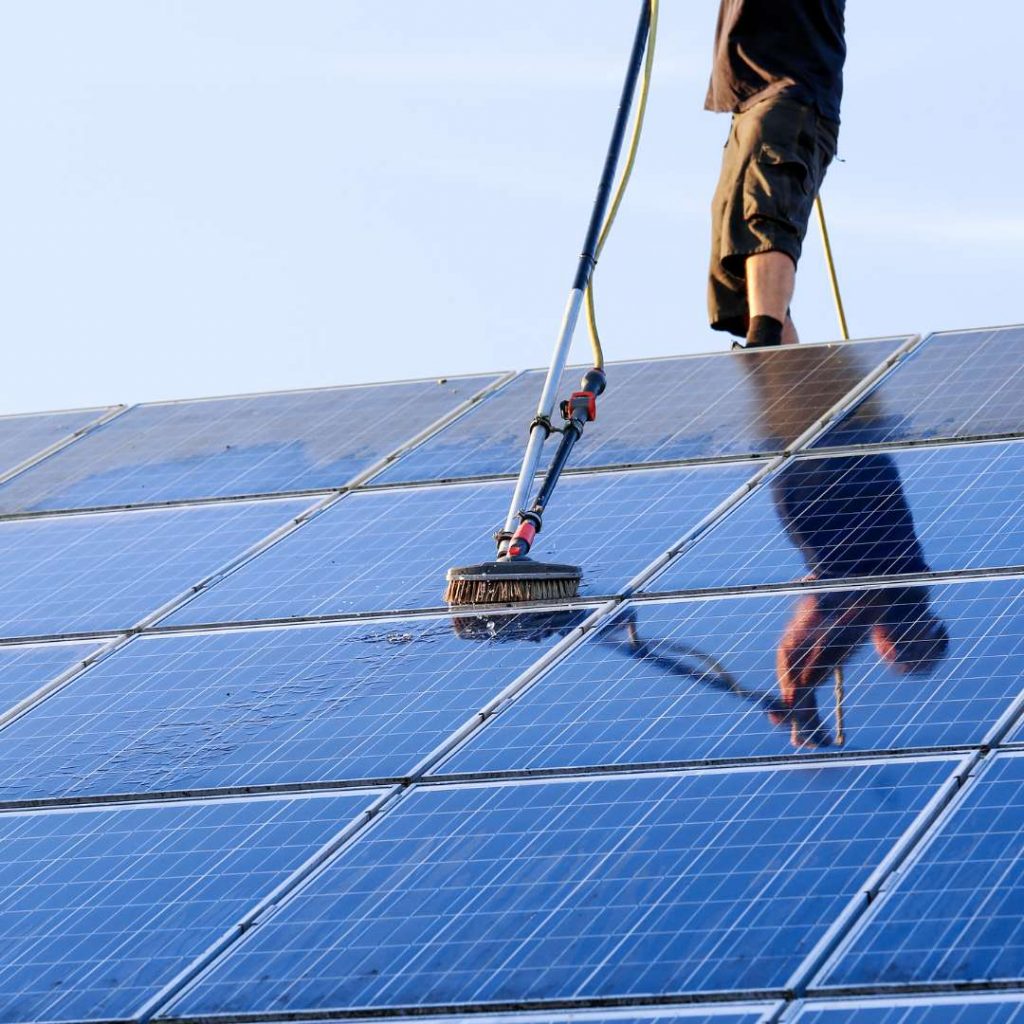
Do Solar Panel Companies Own Your Roof?
No, solar panel companies, as per contractual agreements, do not obtain ownership rights over your roof. This addresses a common concern stemming from previous schemes, such as the Feed-in Tariff (FIT), where third-party ownership models were prevalent. In the past, homeowners and solar panel owners were distinct entities in some cases, leading to a “Rent-a-roof” scenario. In this setup, homeowners reaped the benefits of reduced energy bills, while a third party received export payments. The introduction of the Smart Export Guarantee Scheme has nullified this third-party ownership model. Under current circumstances, homeowners retain full ownership of both their property and the solar panels installed on their roofs.
Do Solar Panel Companies Replace Your Roof?
No, solar panel companies typically do not engage in roof replacement as part of the solar panel installation process. Before proceeding with the installation, a comprehensive survey is conducted by renewable energy experts. During this survey, factors such as the structural integrity of the roof are assessed through weight and wind load calculations. If, during this evaluation, the roof appears poorly maintained or damaged, homeowners are advised to address any necessary repairs or replacements with a roofing contractor before the solar panel installation. This approach ensures that the roof remains structurally sound, promoting the longevity and effectiveness of the solar panel system. The focus is on maintaining the safety of the property while harnessing the benefits of solar energy.
Can Solar Panels Power a Hot Tub?
Certainly, solar panels can be harnessed to power a variety of electrical appliances, including hot tubs. However, it’s essential to understand the nuances associated with this application. Hot tubs typically consume significant amounts of electricity, drawing on a high load of power. While solar panels can contribute to powering a hot tub, a careful and strategic approach is necessary to meet the substantial energy demands. This involves not only the installation of solar panels but also the integration of high-voltage batteries and leveraging off-peak charging. By combining these elements effectively, homeowners can ensure a sustainable and eco-friendly energy source for their hot tubs, contributing to both energy efficiency and reduced environmental impact.
Can Solar Panels Charge an Electric Vehicle (EV)?
Definitely. Solar panels play a crucial role in charging electric vehicles (EVs), aligning with the broader goal of sustainable and clean transportation. The process involves several key considerations:
- Considering the size and efficiency of your solar panel array, as a larger array contributes more energy, increasing the potential for charging your EV.
- Integrating energy storage solutions, such as high-capacity batteries, enables the storage of excess energy generated during sunny periods, facilitating EV charging during lower sunlight or nighttime hours.
- Solar panels enable off-peak charging by accumulating energy during daylight hours, optimizing cost savings by utilizing stored energy during periods of lower grid electricity demand and costs.
- In some setups, excess solar energy can be fed back into the grid, potentially earning credits or compensation, further offsetting EV charging costs.
- Ensuring your home is equipped with an EV charging station compatible with solar energy systems enhances the utilization of solar-generated power for your electric vehicle.
By incorporating solar panels into your home’s energy infrastructure, you contribute to a cleaner environment and enjoy economic benefits by reducing reliance on traditional grid power for both your household and electric vehicle needs. As technology advances, the integration of solar panels and EVs continues to evolve, promising more efficient and sustainable solutions in the future.
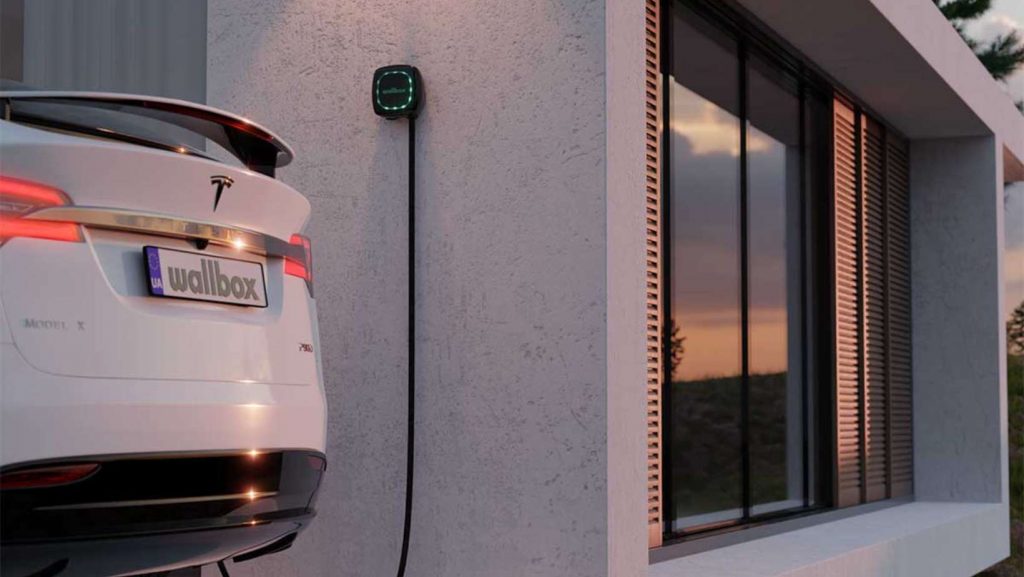
How Can I Get Solar Panels?
The process of acquiring solar panels involves several steps, and at Nano Pro-Tech, we aim to make this transition towards renewable energy seamless for you:
1. Contact Us: Reach out to Nano Pro-Tech, a leading nationwide solar panel installation company in the UK, by calling our dedicated team at 0800 861 1582, emailing us at info@nano-pro.tech, or filling in our online form here.
2. Free Quotes: Take advantage of our commitment to transparency and sustainability by requesting a no-obligation free quote for installing solar panels on your property. This initial step allows you to explore the possibilities and understand the potential benefits.
3. Consultation and Assessment: Once you express interest, our team will guide you through the consultation process. This involves a thorough assessment of your property and roof to determine the suitability for solar panels. We consider factors such as orientation, shading, and structural integrity.
4. Expert Installation: Upon agreeing to proceed, our skilled and experienced installers will undertake the solar panel installation with precision and efficiency. We pride ourselves on being MCS, Napit, and Trustmark approved installers, ensuring that your solar panel system meets industry standards.
5. Post-Installation Support: Our commitment to your solar energy journey extends beyond installation. We offer post-installation support to address any queries or concerns, ensuring the continued optimal performance of your solar panel system.
6. Harness Renewable Energy: With solar panels in place, you can now harness renewable energy, reduce your carbon footprint, and contribute to a more sustainable future.
Whether you’re motivated by environmental consciousness, energy cost savings, or both, Nano Pro-Tech is here to assist you in making the transition to solar power. Feel free to contact us for any additional questions or to explore the various benefits of going solar in your home.
